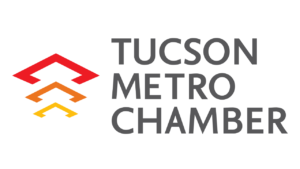SIGN IN
Key Financial Concepts Every Small Business Owner Must Know
Key Financial Concepts Every Small Business Owner Must Know
In today's rapidly-evolving business landscape, your ability to make informed financial decisions can set your small business on a path to sustained growth and success. Gaining financial knowledge is a necessity to navigate the complexities of finance and accounting with confidence. In today’s blog, we’ll explore practical strategies to enhance your financial acumen.
Master the Basics of Accounting and Finance
Dive into the world of accounting and finance by starting with the basics. Cash flow, profit and loss statements, and balance sheets are the cornerstones of understanding your business's financial health. Seek out resources designed for beginners, like online courses, books, and blogs, to break down complex concepts into digestible information. This foundational knowledge is critical for making informed decisions that affect your business's bottom line.
Get Ready for Tax Time
Small business owners must take proactive steps to prepare for tax season to ensure compliance and maximize deductions. Being prepared means understanding your tax bracket, tax deadlines, and the documents needed. If you're self-employed, you'll need a meticulous record of your expenses and must gather Forms 1099, Schedules K-1, and income records to verify amounts not reported on 1099-MISC or 1099-NEC. This preparation helps avoid penalties and leverages potential tax benefits, making it crucial for financial health. Adobe offers a deeper dive into these tax essentials — check it out.
Tackle Debt Head-On
Debt can be a double-edged sword. While it's often necessary for growth, mismanagement can lead to financial instability. Prioritize repaying high-interest debts to minimize interest costs and consider renegotiating loan terms to more favorable ones. A proactive approach to debt management not only improves your financial health but also positions your business for better credit opportunities in the future.
Implement Accounting Software
The advent of technology in finance has brought about sophisticated accounting software, an invaluable tool for small businesses. This software automates bookkeeping, invoicing, and financial reporting, providing you with real-time insights into your financial status. Investing in the right accounting software simplifies financial management, allowing you to focus on strategic decisions rather than being bogged down by paperwork.
Enroll in Financial Literacy Workshops or Seminars
Financial literacy is a continuous journey that is essential for any business owner. Engaging in workshops or seminars dedicated to financial education can significantly enhance your understanding and skill set, opening doors to new methodologies and strategies. These platforms offer the latest in budgeting, investing, and risk management, taught by industry experts, providing a comprehensive overview of financial principles.
Network with Peers for Best Practices
Networking with fellow entrepreneurs and industry peers is a treasure trove of insights and experiences, offering a unique opportunity to learn from others' successes and challenges. Such interactions can introduce you to innovative financial management practices and solutions to challenges that many small businesses face, fostering a collaborative environment for growth. Sharing experiences and advice within a peer network can illuminate new paths to financial stability and growth.
Collaborate with a Qualified Accountant
The complexity of tax laws and financial regulations makes partnering with a qualified accountant more than just a convenience; it's a strategic move. An accountant can provide personalized advice on tax planning, compliance, and financial strategy, ensuring that your business maximizes its financial potential while staying within legal bounds. Their expertise can help you navigate the intricate world of finance, offering solutions that are tailored to your business's unique needs. This partnership helps in strategizing for future growth, making it a crucial asset for any small business aiming for long-term success.
Implement Robust Financial Planning
A well-crafted financial plan is your roadmap to success. This plan should detail your budgeting strategies, financial forecasts, and contingency plans. Such comprehensive planning enables you to anticipate future financial needs, manage resources effectively, and make adjustments in response to market changes. A robust financial plan is a dynamic tool that guides your business through growth and challenges alike.
Gaining financial knowledge is not just an advantage; it's a necessity for the sustained success of your small business. By gaining a sense of accounting basics, making sure you’re prepared for tax season, networking, creating a solid financial plan, and following the other tips discussed in this guide, you're charting a course for your business's future. Remember, the goal isn't just to survive the ever-changing business landscape but to thrive within it.
Become a member of the Tucson Metro Chamber of Commerce to get the tools and make the connections you need to build a winning business in our community!
